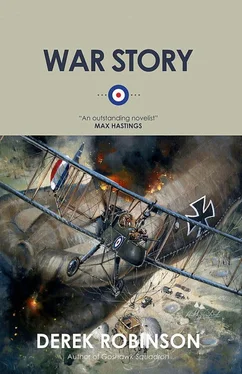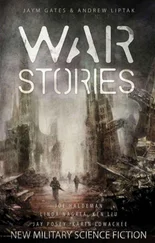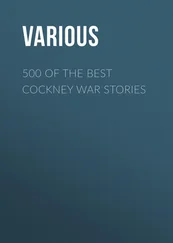“Oh, surely,” Lacey murmured. “We all dream of toppling naked into a cool calm river and letting the running current do with us what it will.”
“I don’t,” Paxton said. “I don’t like rivers.” This was not true, but he wanted to put Lacey in his place.
“Actually, it’s a canal.” Lacey let the pencil fall, and this time did not catch it; instead he kicked it before it touched the floor, sending it flying into a corner. “The Somme canal. The river’s weedy, so the officers swim in the Somme canal.” Lacey was brisk now, dusting his hands. “It cleanses them of the corruption of combat, you see. It washes off the sweat of death.”
“What rot.”
“Yes.” Lacey turned and smiled a smile of pleased surprise. “Rot sums it up nicely. What rot is war. Its stench is everywhere. Nothing can resist it. What rot.”
“How long have you been with the squadron, corporal?” Paxton asked.
“Eighteen months.” Lacey waited until Paxton’s mouth began to open and added:”Sir.”
“Eighteen months and still only a corporal, corporal. Very slow.”
“Yes. Sinfully languid, in fact.” He took a small brush from his desk and began tidying up his moustache.
Paxton had had enough. “Come and get me when the adjutant surfaces,” he said, and made for the door.
“Don’t lend him any money,” Lacey called. Paxton turned and stared. “He’ll try to borrow money,” Lacey said. “Don’t lend him any. It’s bad for him.”
“What a preposterous idea,” Paxton said. “Corporal.”
“He picked it up in Egypt,” Lacey said. “Sir.”
Driving back from Brigade headquarters, Rufus Milne had a lot to think about. To his surprise he found himself thinking about other matters. In particular, about his war and the number of times it had nearly killed him.
This was something he never discussed, never mentioned in letters. He didn’t keep a diary. His response to danger was to forget it as soon as it had passed. This policy had worked very well: he suffered no nightmares, no spells of depression, none of the crippling anxiety which he knew some other pilots suffered when they were getting ready to fly. For nearly two years, Milne had done his job day by day, sometimes boring, sometimes exciting, and reckoned himself lucky to have it. Now, suddenly, as the car charged along a dead-straight road, wheels drumming, poplars flickering by, he saw himself in a plane that was cartwheeling across a turnip field like a blown-away windmill, and he felt sick.
The plane was a Maurice Farman so the crash must have happened in 1914, soon after the squadron came to France. No trenches then, just armies and battles and confusion. Nobody knew where the enemy was (or, if they claimed they knew, they turned out to be wrong) so the RFC flew from dawn to dusk, endless reconnaissance patrols. The roads were crowded but the skies were empty; anyway, in those days enemy planes couldn’t hurt you. Milne was at five thousand feet, busily marking troop columns on his map and wishing he had some chocolate, when the engine stopped. No coughing or spluttering, no hesitation: sudden silence. It was a very final decision.
He glided westward for several miles. The field he picked out looked green and smooth, but over the last two hundred yards the wind turned boisterous and blew him sideways, across a turnip field. He knew, as he saw the rows of turnips rushing past, slantwise, that his wheels would never run; and when they touched he wrapped his arms around his head. He felt like a man in a barrel over a waterfall: the machine was flailing itself to bits, smashing its nose and tail and wings, the earth and sky whirling, until the fit of rage had exhausted itself and Milne found himself sprawled in a battered cockpit and not much else.
That was his fifth forced landing but his first real crash. He had seen nothing of it at the time, but now, driving this car, he could follow it all in his mind, perfectly clearly. Ten seconds of cartwheeling chaos, and he’d walked away. Limped away. The memory made him shudder.
He had to slow behind a long line of horse-drawn artillery. For a mile he ambled along in low gear, thinking that if he hadn’t been a pilot he might have been a gunner. It must be fun to bang away at the enemy, catch him by surprise, make him hop. Fun for the Hun gunners, too, presumably.
The German archie had certainly had fun the day they caught Milne in a skimpy little BE2a somewhere near Festubert. He’d treated those fluffy balls of black smoke as a joke, until one of them stung him. It burst below, and flipped the plane onto its back.
Milne had panicked then. The taste of terror came back to him now, and he hated it so much that he tried to drive away from it: he pulled out and accelerated past the guns, making the horses twitch and jerk their heads as he roared by.
That shellburst had cut two control cables. The BE2a wallowed on its back for a short eternity. Milne cursed it and kicked it, and the German gunners rejoiced to find an easy target. The little patch of sky was filthy with shellbursts. Milne never discovered how he righted the plane, but he knew it was sheer luck that he flew home.
And it had been sheer luck, too, when that Aviatik had failed to kill him. Milne hadn’t thought of it for months but now he could see everything: those dun, translucent wings with dense black Maltese crosses, the propeller-disc shining as it met sunlight, the tail-unit that was all curves, like a big butterfly. The Aviatik had caught him at the weary end of a long patrol, had come out of nowhere and hammered him. It hit the engine. His machine was limping and labouring as Milne screwed his head around to watch the Aviatik perform a steep and elegant bank and return for the kill. The German never fired. His gun had jammed, and no amount of thumping released it. They waved to each other before they parted, but when he landed Milne was so weak that his mechanic had to help him get out of the cockpit.
Milne was sweating now, just at the memory. He stopped the car beyond a little stone bridge and washed his face in the stream. How odd to get so upset at a lot of old memories. More than odd: silly, because the only thing that mattered was that he hadn’t been killed. In eighteen months’ flying and fighting there were bound to be a few close shaves. Like that time young Jenkins damn near collided with him over Vimy.
Milne wished he hadn’t remembered that. Young Jenkins had sidled across his path and almost killed them both. A week later Jenkins had flown slap-bang into his flight commander, a man called Harry Drake. That was sheer and utter waste. Harry Drake had been a very nice man.
Minnows played cheerfully in the stream. Milne threw a small pebble and scattered them. They soon came back. He envied them. When he came back, he decided, he was going to be a minnow.
Paxton had drawn a revolver from the armoury. He had decided that an Orderly Officer should carry a revolver; it helped to demonstrate his authority. By late afternoon, as he walked about the aerodrome in full uniform, he was beginning to regret his decision.
The officers were playing cricket again. He couldn’t help feeling that if this was war he didn’t think much of it. All anyone did was swim and play cricket. He was hot, and his blasted revolver kept banging against his hip in a most annoying way. Also he had been bitten inside his puttees by some blasted French insects. He itched and could not scratch. He glanced at the cricket match. Half the players had crowded together and were arguing about something; the other half were lying down. The trouble with Hornet Squadron, he decided, was that it was slack. It lacked the Will to Win.
Private Fidler came up to him and saluted.
“Mr. O’Neill’s compliments, sir, and could you come and look at something suspicious he’s found lying in the grass, you being Orderly Officer and all.”
Читать дальше












